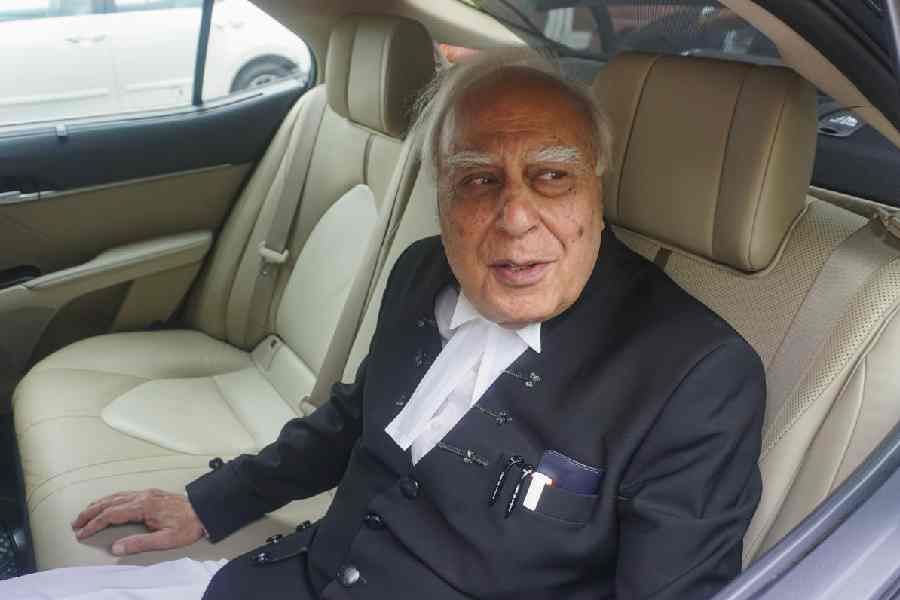Senior lawyer Kapil Sibal on Saturday called for empowering the district judiciary to deliver justice “without fear or favour”.
He also expressed concern — shared by the Supreme Court in several recent rulings — at the reluctance of trial courts and district and session courts to grant bail, saying they must learn to withstand pressure.
Sibal was speaking as president of the Supreme Court Bar Association at the inaugural, two-day conference of the All India District Judiciary, organised by the Supreme Court and inaugurated by Prime Minister Narendra Modi.
“Any structure with a weak foundation will impact the edifice and eventually collapse. The justice delivery system at the foundation of the judicial structure needs to be strengthened both in terms of quantity and quality of manpower and infrastructure,” Sibal said.
“Our trial court(s) and district and session courts need to be empowered to deliver justice without fear and favour. Unless people at the bottom of the pyramid have the ability to withstand the pressure, the superstructure of the polity will not be able to deliver.”
Sibal said that judges at the district level should be instilled with the confidence that “their judicial pronouncements shall never be held against them and that they represent the spinal cord of the justice delivery system”.
He said the effectiveness, fairness and integrity of the district courts impact the public perception of the credibility of the entire judicial system.
“…That the trial court(s) and district and session courts are loath to grant bail in matters of some significance itself is symptomatic of the malaise that has set in. In the course of my career, I have seldom witnessed the grant of bail at that level,” he said.
“This is not just my experience, but the Chief Justice of India has said often enough that the court at the highest level is burdened with matters of bail because, at the level of trial courts and district and session courts, bail seems to be an exception.”
Sibal added: “Of course, it goes without saying that the grant of bail depends on the facts and circumstances of each case, but the pronouncements of the court have in the recent past adhered to the principle that bail is the rule and jail is the exception.”
Sibal recalled that this principle was laid down by a five-judge constitution bench in the Gurbaksh Singh Sibbia vs State of Punjab case (April 1980) and reaffirmed by the Supreme Court in several recent judgments in relation even to stringent laws dealing with money-laundering, terrorism and narcotics.
“Liberty is the foundational substratum of a thriving democracy. Any attempt to throttle it impacts the quality of our democracy,” Sibal cautioned.
The senior advocate regretted the abysmally low judge-population ratio in India (21 judges to a million population), compared with the ratios of 100 or 200 judges to a million population in the developed world.
Therefore, the roster at the level of the trial and district courts was overburdened daily, affecting the lives of the millions waiting for justice to be delivered to them, he said.
Sibal also complained about the low salaries and pensions paid to the district-level judges.











